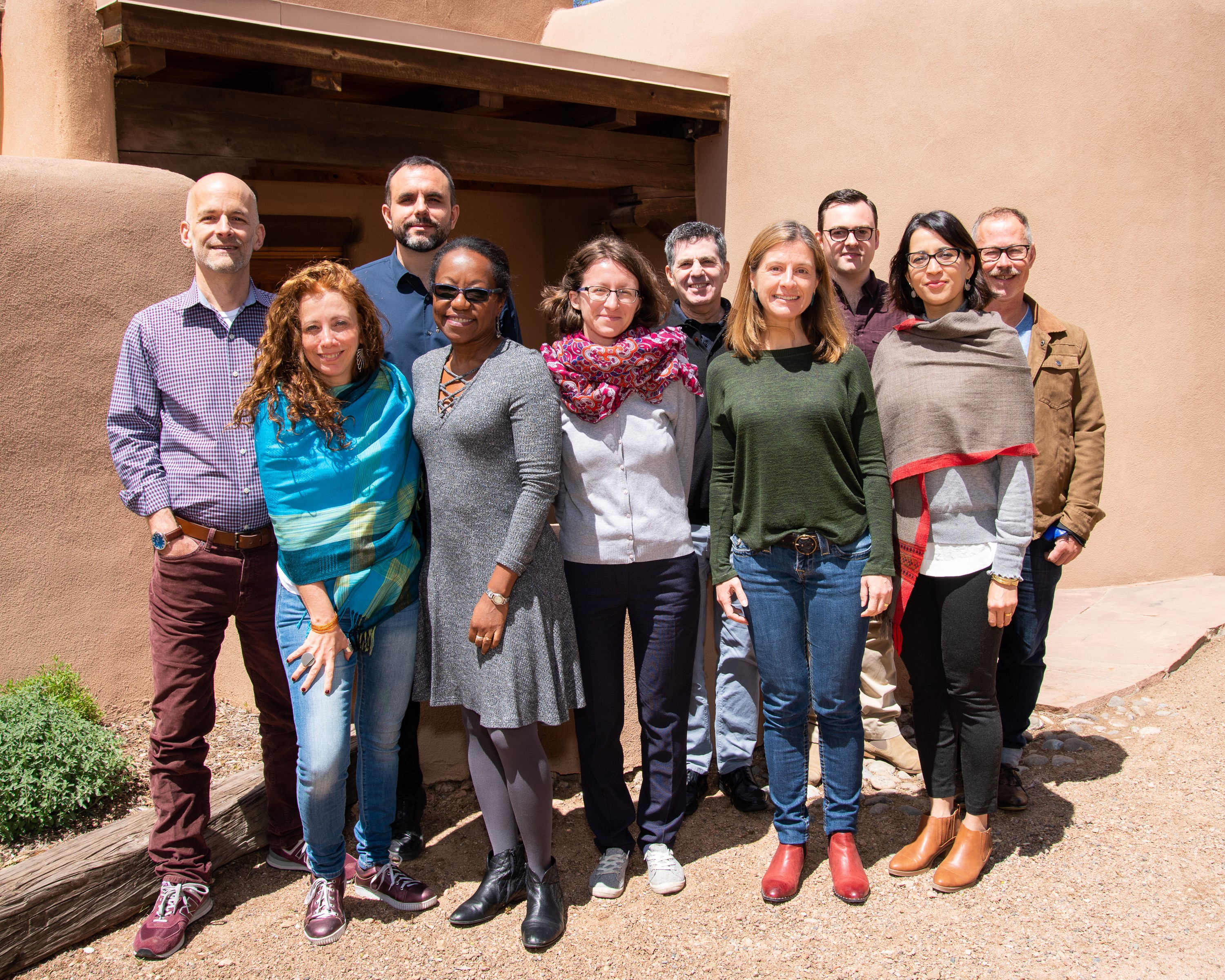
Precarious Mobilities: Brazil’s “Previously Poor” in Times of Growth and Crisis
Co-chaired by Benjamin Junge and Sean T. Mitchell
April 30 – May 2, 2019
Precarious Mobilities: Brazil’s ‘Previously Poor’ in Times of Growth and Crisis
The “Precarious Mobilities: Brazil’s ‘Previously Poor’ in Times of Growth and Crisis” seminar focused on analysis and write-up for a three-year anthropological study of class mobility in Brazil through discussion of findings and implications. The study examined Brazil’s so-called “new middle class” – poor and working-class people who experienced various forms of social, economic, educational, and geographic mobility during the period of government under the left-leaning PT (Workers’ Party) (2003-2016).[1] Participants’ collaborative, mixed-methods project focused on how (once) economically-ascendant Brazilians in three cities (Recife, Rio de Janeiro, and São Paulo) responded to and made sense of mobility – both upward and downward – during the earlier growth years, and the more recent period of political and economic crisis (2013-2018).
Empirical data for the project came from a structured baseline survey (Year 01) conducted in 1,200 households on socioeconomic life; consumption, leisure, and labor patterns; political and economic subjectivities; and social engagement. In Years 02 and 03, researchers conducted neighborhood studies using both formal and informal interviewing techniques, social mapping, and participant observation.
Seminar sessions prioritized two goals:
- To discuss preliminary findings related to broader anthropological conversations on class, democracy, and political subjectivity.
- To discuss plans for a collaborative book-project joining major themes and methodologies of the study
The seminar allowed focused, advanced conversation of seminar participants’ findings and for developing arguments, informing participants’ many article and book projects. These scholarly works will illuminate the changes to subjectivity and social relations accompanying a rare and short-lived reduction of inequality, giving a topic of global significance the consideration it deserves. In addition, the seminar resulted in a 45-page Rapporteur’s Report, detailing all presentations, commentaries, and conversations. Finally, the seminar inaugurated a conversation among interdisciplinary scholars of class in today’s world which will no doubt lead to meaningful collaborations in the future.
[1] This project was supported through a three-year collaborative grant from the National Science Foundation’s Division of Behavioral and Cognitive Sciences, Cultural Anthropology Program, “Collaborative Research: Social Mobility, Poverty Reduction, and Democracy in an Emerging Middle Class” (grants 1534606, 1534621, and 1534655).
Benjamin Junge, Chair
Associate Professor
Department of Anthropology
State University of New York at New Paltz
Sean T. Mitchell, Chair
Associate Professor
Department of Sociology and Anthropology
Rutgers University – Newark
Tarini Bedi
Associate Professor
Department of Anthropology
University of Illinois at Chicago
Brodwyn Fischer
Professor
Department of History
University of Chicago
Charles Klein
Associate Professor
Department of Anthropology
Portland State University
Moises Kopper
Postdoctoral Researcher
Max Planck Institute for the Study of Societies, Germany
Luminita-Anda Mandache
PhD Candidate
Department of Anthropology
University of Arizona
Laura Moutinho
Professor
Department of Anthropology
University of Sao Paulo
Vania Penha-Lopes
Associate Professor
Department of Sociology
Bloomfield College
Jeffrey Rubin
Associate Professor
Department of History
Boston University
Generous funding provided by the National Science Foundation
